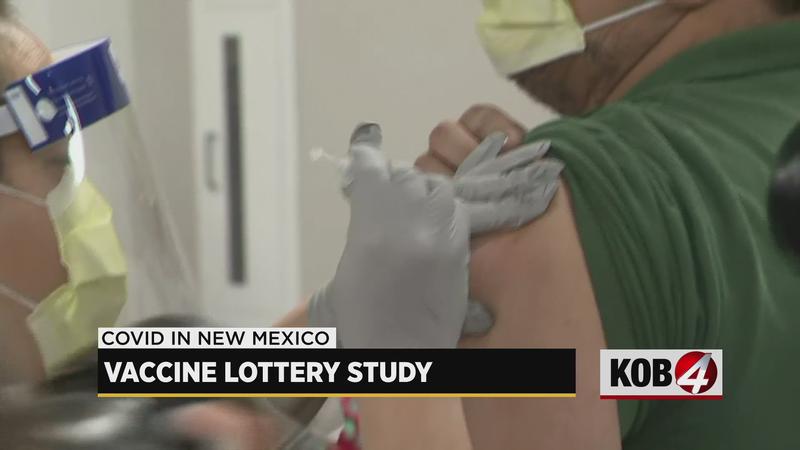Study shows COVID vaccine lotteries were ineffective
[anvplayer video=”5066926″ station=”998127″]
ALBUQUERQUE, N.M. – A recent study concluded that COVID vaccine lotteries did not lead to more vaccinations.
Researchers said the large prize drawings, like the sweepstakes in New Mexico this past summer, had essentially “zero difference” in vaccination rates in states that used them compared to those that did not.
Other studies have had similar findings.
These results were published this month in the Journal of American Medical Association. Researchers said a strategy that did work was direct payments for getting a COVID vaccine, such as the $100 cash incentives that New Mexico used.
New Mexico spent $10 million on lottery winnings, all of which came from taxpayer money — from federal funding. States like New Mexico were also able to spend the federal funds on messaging, like advertising the vaccine and combating misinformation.
In responses to KOB 4, New Mexico officials disagreed with the study’s findings. The Department of Health pointed to a graph of vaccine doses over time, saying the sweepstakes halted a downward trend.
A governor’s office spokesperson added, “Our data is very clear – financial incentives led to more New Mexicans getting vaccinated.”
The study that concluded lotteries were not effective comes from researchers who analyzed the data between states. State officials did not say who was involved in its analysis of its numbers.
